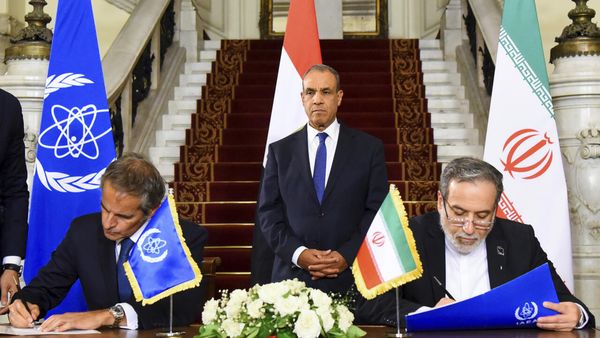Chess is popular worldwide, with over 600 million people playing it regularly in more than 200 countries. That has given Magnus Carlsen a lot of competition.
And yet he's been the No. 1-ranked player in the world since 2011 and the global champion five times starting in 2013 (before declining to defend the title in 2023). He has even won playing dozens of opponents at the same time while blindfolded, memorizing where the pieces are on each board.
He soared from a young age because of a range of traits and habits he developed, rather than simply the result of genetics or support from his family.
"Self-confidence is very important," Carlsen told IBD. "If you don't think you can win, you will make cowardly decisions in crucial moments. I also try to focus on the person sitting across from me, choosing the moves that are most unpleasant for them, based on their style."
Develop The Skills You Need Early Like Magnus Carlsen
Now 34, Carlsen was born in 1990 in Tonsberg, Norway, to tech consultant Henrik Albert and chemical engineer Sigrun Oen. They moved to Finland and then Belgium before returning to Norway when Magnus was eight. His dad was a talented amateur chess player who recognized his son's potential when Magnus put together 50-piece jigsaw puzzles at age 2 and by age 4 was assembling Lego sets intended for 10- to 14-year-olds.
Magnus had his first chess lesson at 5 years old, but did not show much interest. However, the same year he was given a book with information on all the countries in the world and was able to recall everything from their capitals and flags to connections between the nations. This showed he had the exceptional memory that would make him a chess master.
However, Magnus mostly developed his skills playing chess by himself, then ruminating for hours on what he learned. He entered his first Norwegian tournament at 8 years and 7 months old, and scored very well. By 2000, he was studying or playing chess for several hours a day, and over the next two years participated in 300 tournament games.
After primary school he took a year off to participate in European tournaments, rising to ninth place in the 2003 World Under-14 Championship before returning to complete his secondary education.
Commit To Continuous Learning
There are over 4 billion possible moves in chess, which make the "possible variations of chess games more than there are atoms in the observable universe," according to the National Museums Liverpool in the United Kingdom.
"Entry is not easy or enjoyable at first," Carlsen told podcaster Joe Rogan in 2024. "Your attitude should be somewhere between being optimistic and delusional about achieving your goals, because otherwise you won't be aggressive enough about taking risks."
His first professional coach was Norway's top player, who in 2000 introduced Carlsen to Torbjorn Ringdahl Hansen, an International Master who helped Carlsen raise his FIDE rating (the International Chess Federation's evaluation of a player's potential) from 904 to 1,907.
From the fall of 2000 to the end of 2002, Carlsen played nearly 300 rated tournament games. In 2004, he defeated former world champion Anatoly Karpov. Then he was paired with Garry Kasparov, the No. 1-rated player from 1984 until his retirement in 2005. To everyone's astonishment, their first game ended in a draw, though Kasparov knocked him out of the tournament in subsequent games.
Become Stronger By Facing The Best Competitors
In 2008, Carlsen tied with another player at the top of his first "super tournament." He tied with two other players at the Baku Grand Prix and won outright at Nanjing in 2009. Chess statistician Jeff Sonas declared Magnus' triumph as one of the 20 best tournament showings of all time and the best chess performance ever for a teenager.
"He went from being an almost world-class player to an awesome force that catapulted him to world number one in January 2010 and became the youngest player ever to top the FIDE rating list," wrote Tibor Karolyi in "Endgame Virtuoso Magnus Carlsen." "Chess is probably the hardest of all sports in which to win the title of World Champion, so it was not certain that he would be able to topple the reigning champion, Viswanathan Anand. In fact, he did not."
In 2013, Carlsen again qualified to face Anand at Chennai, India, and this time he emerged as the 16th World Champion. "What he did was like climbing Mount Everest in tennis shoes without an oxygen mask," remarked Frederic Friedel, founder of ChessBase.com, in the documentary "Magnus Carlsen: The Story of His Life."
"I've accomplished quite a few things, and I try to look forward and to focus on what's coming next, rather than dwelling on things in hindsight," said Carlsen
"In the high-stakes world of chess championship, pressure exposes weakness, yet Carlsen thrives under pressure because he doesn't try to control the uncontrollable, but his response to it," said Michael Pilarczyk, author of "Master Your Mindset: Live a Meaningful Life." "He brings calm focus, emotional control and mental resilience to every match. He is not attached to past moves or rigid strategies, but engages in powerful flexible thinking."
Leave A Positive Legacy And Enjoy Life
In 2014, Carlsen became the first player to also hold world championships for the other two FIDE-rated games: Blitz Chess (10 to 59 minutes per player, which emphasizes tactical skills) and Rapid Chess (10 minutes or less, which relies on intuition for lightning-fast decisions).
But in 2023, Carlsen decided not to devote the preparation time needed to defend the world title again. His extraordinary career had already shown every player how to become a champion repeatedly, and he would continue to win most other contests. He also married in January 2025.
"I'll continue to compete, but I also want to spend more time with my growing family and friends, including following my favorite football (known as soccer in the U.S.) team, Real Madrid CF," he said. I also need to focus on my business projects, and my big priority is Take Take Take, an app I cofounded that gives fans a fresh, real-time way to enjoy chess and follow games, with text-based commentary."
Carlsen is also the brand ambassador for Chess.com and companies like Nordic Semiconductor and the gambling firm Unibet.
"Carlsen reminds us that real greatness is fueled by joy," noted Pilarczyk. "When you love the process more than the reward, you unlock a deeper resilience that carries you through every challenge."
Magnus Carlsen's Keys
- Five-time World Chess Champion.
- Overcame: Players who had much higher ratings for their expected outcomes.
- Lesson: "Self-confidence is very important. If you don't think you can win, you will make cowardly decisions in crucial moments."







